WAC information portal prepared an essay on the occasion of the 70th anniversary of the people's poet of Karachay-Cherkessia, writer and translator.
Childhood and youth
On May 17, 1953 in the village of Krasny Vostok was born the national poet of the Karachay-Cherkess Republic Khadzhismel Adzhibekov. In official documents, the writer appears as Alexander, but he entered literature under his middle name, which was given to him by his mother - Khadzhismel (ХIаджьисмель in Abaza).
In 1971, Adzhibekov graduated from the Krasnovostochnaya Secondary School. From childhood he loved literature, studied foreign languages, and from his youth he was dealing with translations.
The choice of the future higher education was obvious. Adzhibekov entered the Faculty of Foreign Languages of the Pyatigorsk Pedagogical Institute.
Alexander Pushkin, Mikhail Lermontov, Nikolay Rubtsov, Mussa Jalil, Eduard Asadov, Heinrich Heine, Ivan Tarba, Terent Chania and many others are poets whose poems sounded in the Abaza language thanks to Adzhibekov.
"This story began in Pyatigorsk when I was studying at the Institute of Foreign Languages," recalls Adzhibekov. "While taking a course in phonetics, whose teacher was Klara Germanovna Kaber, we somehow began to analyze one of Heinrich Heine's poems. The teacher asked us: "Which of the great Russian poets translated this poem into Russian?" We were yesterday's schoolchildren, and none of us could answer this question. This upset her greatly. She later replied that the author was Mikhail Lermontov. He made two versions of the translation of this poem. Then she began to read them along with an epigraph taken from Heine's work. We felt so ashamed that on the same day, immediately after class, the whole group went to the library. We took Lermontov's four-volume book, found these verses, and then something "awaked" in me. I had an idea: if only I could translate the poems of Heinrich Heine into the Abaza language. His work has become an incentive for me in translation work and occupies a special place," recalls Adzhibekov.
While studying in Pyatigorsk, he met his future wife, Natalya, a native of Evpatoria. They have been together for 47 years.
Teaching and literary activity
After completing his studies at the Faculty of Foreign Languages, Khadzhismel Adzhibekov was sent to the Tuva Autonomous Soviet Socialist Republic, where he began teaching German and English. Later he became the headmaster of the Kochetovskaya Eight-year School, and then the Sosnovskaya Secondary School.
In 1981 he moved to the Crimea. There, the poet worked for a year as a teacher in a children's and youth sanatorium in Evpatoria.
Adzhibekov returned to Karachay-Cherkessia in 1982. Upon returning to his homeland, he became a staff member of the "Kommunizm Alashara" newspaper (now Abazashta).
Work in the national newspaper again awakened in Adzhibekov a passion for literary creativity. In 1985, he, in collaboration with the poets Fatima Apsova and Ali Ionov, published the first poetry collection "Flowers of Life". In 1989, the documentary story "When Pleiades wake up" was published.
The peak of the writer's creative activity came in the 2000s. He published 15 collections of poetry and prose. In 2002, Khadzhismel Adzhibekov was admitted to the Writers' Union of Russia. He is recognized as one of the most significant modern Abaza writers.
Working on his own works, Adzhibekov continued to translate texts of other writers into the Abaza language. Among the most popular translations was still the poetry of Heinrich Heine.
The jubilee, 15th author’s collection "Moments of my time" was released in 2022. It included poems and translations of seven ballads by German authors.
Folklore preservation work
Khadzhismel Adzhibekov is an active collector of Abaza folklore. Back in 1994, he, in collaboration with scholars Vladimir Tugov and Shakhambi Khuranov, published the "The Hearth of the Wise Men" collection. It includes stories and legends recorded from the words of the old-timers of Krasny Vostok and other settlements of Karachay-Cherkessia.
"Few people were engaged in collecting legends and tales in those days when we started writing the "The Hearth of the Wise Men" collection. We have tried to correct this omission. The depth of historical facts used in the collection is more than 500 years. I hope that the significance of the book will remain after many generations," says Adzhibekov.
Folklore texts were also included in the collection of works "Traces of the Golden Kubgan". In addition to them, the collection contains the works of Simon Basaria ("Abaza village in the Malokarachaevsky District") and Mikhail Lakrba ("First Book") translated from Abkhaz into Abaza by Adzhibekov.
In 2019, another collection of folklore texts was released - "The Covenant of Storytellers". The international association "Alashara" released it as part of the "Comprehensive program for the preservation and development of the language, culture, spirituality of the people of Abaza for the period 2017-2019". The book includes about 80 folklore texts that Khadzhismel Adzhibekov collected in the 80-90s.
"In every legend, the covenant of those who brought them to our days sounds," Adzhibekov wrote in the preface. "Take care of the word of our people, remember its meaning correctly and convey it to your children, join forces and keep it – I beg you!"
Of great value is the audio CD attached to the book, which contains the voices of the Abaza storytellers and the voice of the last native speaker of the Ubykh language, Tevfik Esench.
Study of the Abaza language
Another area of activity of Khadzhismel Adzhibekov is the study of the Abaza language. He is considered one of the most skilled experts.
"There are people who give their lives, strength, knowledge to serve their people and Fatherland, thereby showing patriotism. Khadzhismel Adzhibekov is one of them. Having worked with him for 30 years at the State Television and Radio Broadcasting Company "Karachay-Cherkessia", I can firmly say that there are few people who can surpass him in knowledge of the Abaza language. He has always been distinguished by deep knowledge and firmness of character," said Fatima Khunova, correspondent of the radio broadcasting service, about Khadzhismel Azhibekov.
Support for the people of Abkhazia
Khadzhismel Adzhibekov has a lot in common with the culture and social life of Abkhazia. He supported Abkhazia in the difficult war and post-war years.
"While living in Tuva, I received a ticket to vacation in a sanatorium in Khosta in 1980. It was then that, together with a tourist group, I first visited Abkhazia. We made a trip to Lake Ritsa. Then, separately from the group, I visited Sukhum, went to bookstores, where I took a lot of books in the Abkhaz. While in Tuva, I began to study the Abkhaz language. This is how my love for Abkhazia arose," said Adzhibekov.
During the events of 1988-1989, Adzhibekov arrived in Sukhum and supported the protest actions of the Abkhazians. During the Patriotic War of the people of Abkhazia in 1992, he spent two months in Pitsunda. In October and November, he covered the situation on the fronts of the Georgian-Abkhazian war.
"Abkhazia occupies a special place in my heart. I could not but support the fraternal people in a tragic period. That is why I decided that I had to go. I wrote down information about the events taking place. The materials were heard on the radio broadcasting of the State Television and Radio Broadcasting Company "Karachay-Cherkessia". I actively kept a diary, the entries from which have not been published. I hope that in the future I will be able to create a work dedicated to this war," said Adzhibekov.
Adzhibekov also took part in the first congress of the International Association of the Abkhaz-Abaza people (IAAAP, now WAC) in the village of Lykhny in 1992.
"I remember the speech of the first president of Abkhazia, Vladislav Ardzinba, at the convention in Lykhny. His speech inspired everyone present, people stood up and applauded. Then we realized that we had to fight to the end for the freedom of Abkhazia," recalls Adzhibekov.
Current period
From 1989 to present days, Adzhibekov has been in charge of the editorial office of broadcasting in the Abaza language of the radio broadcasting studio of the Karachay-Cherkessia State Television and Radio Broadcasting Company. He hosted two shows: "The Hearth" and "Literary Meetings".
The radio magazine "The Hearth", created by Adzhibekov, first went on air on August 4, 1990. Materials were mainly spiritual and of moral orientation. It was devoted to the Great Patriotic War, the life of young people, national customs and traditions, the problems of preserving the native language and culture. Memoirs of wise centenarians, natives of the Abaza villages, essays about working people who have become a model for the younger generations have become a regular column of the magazine.
All broadcasts of the "The Hearth" radio program were not only preserved in the personal archive of Khadzhismel Adzhibekov, but also ended up in the golden fund of the House of Radio of the State Television and Radio Broadcasting Company "Karachay-Cherkessia".
"My approach was the following: if I wrote about a person, I tried to write down and save his every word. Only in this way I was satisfied with the work done. I adhere to this approach to this day. These transmissions have become archival. As time passes, it is difficult to recall any event that happened once, but it remains for a long time when it is recorded on paper. You yourself are surprised when at some point you pick up the notes again and re-read them. It happens that you again talk about the same person, either on the occasion of an anniversary, or in connection with some event in which he participated. Old records help highlight the main strokes in his fate. Therefore, I have always attached great importance to the careful work on programs," recalls Adzhibekov.
For a long time, Khadzhismel Adzhibekov was a regular contributor to the "Abaza" magazine published by the International Association of the Abkhaz-Abaza People (now the WAC), and was engaged in distributing the magazine in Karachay-Cherkessia.
Khadzhismel Adzhibekov actively cooperates with the Russian Institute of Bible Translation in Moscow. Adzhibekov translated from Russian into the Abaza language "The Wisdom of Solomon", the Gospel of Luke and the Gospel of Matthew. Today he is working on the translation of the Psalter and the Acts of the Holy Apostles.
The author of literary collections, translator, prose writer Khadzhismel Adzhibekov continues to work for the benefit of the development of Abaza culture to this day.
Awards and merits
Khadzhismel Adzhibekov is the winner of many medals and orders received for his professional activities and contribution to the development of Abaza literature. His works were included in the textbooks of the Abaza language and in the anthology of national literatures of Russia.
In July 1988, the State Committee for Publishing, Printing and Book Trade and the Central Committee of the Trade Union of Cultural Workers awarded Khadzhismel Adzhibekov the title of "Excellent Press Worker of the USSR". In 2000, he received the Certificate of Honor "Contribution to the development and preservation of the Abaza culture" of the Presidium of the People's Assembly of the KChR. In September 2007, he was awarded the honorary title of Honored Journalist of the Karachay-Cherkess Republic. In June 2008, Adzhibekov became a laureate of the Presidential Prize of the KChR in the field of literature and art, and in 2014 he received the title of "People's Poet of the KChR".
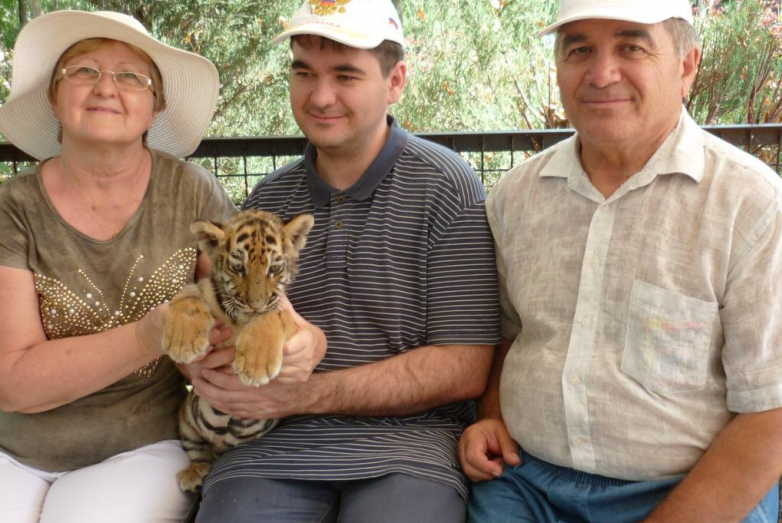
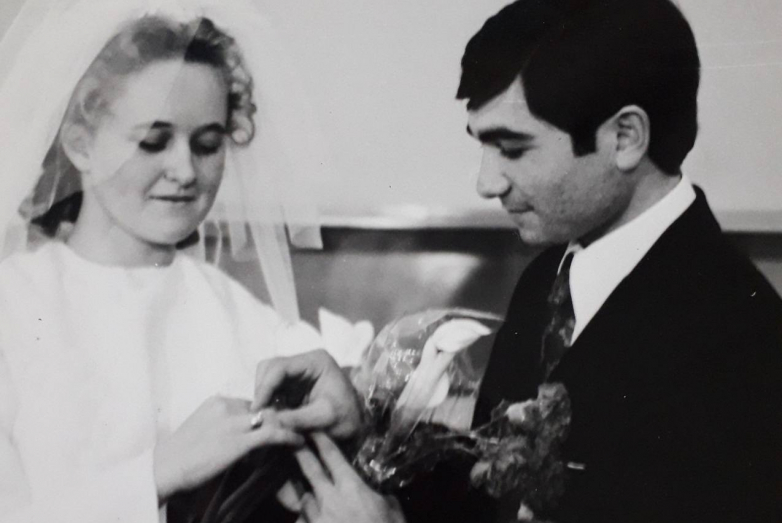
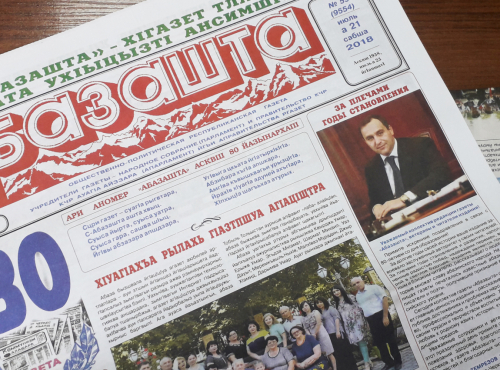
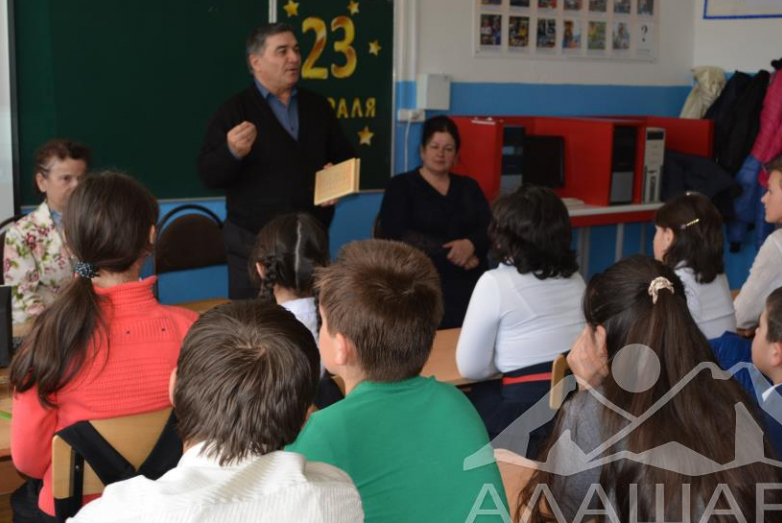
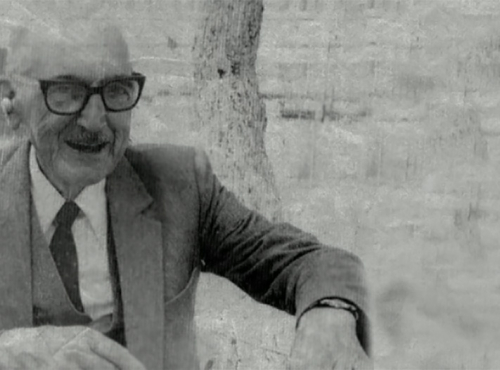
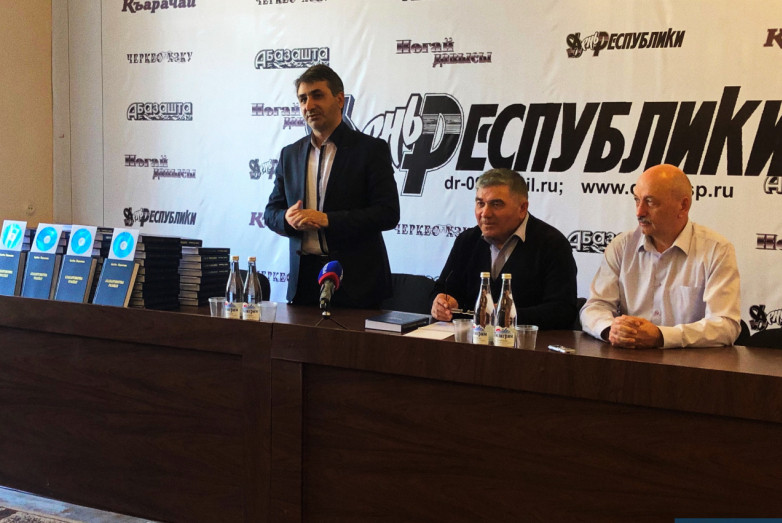
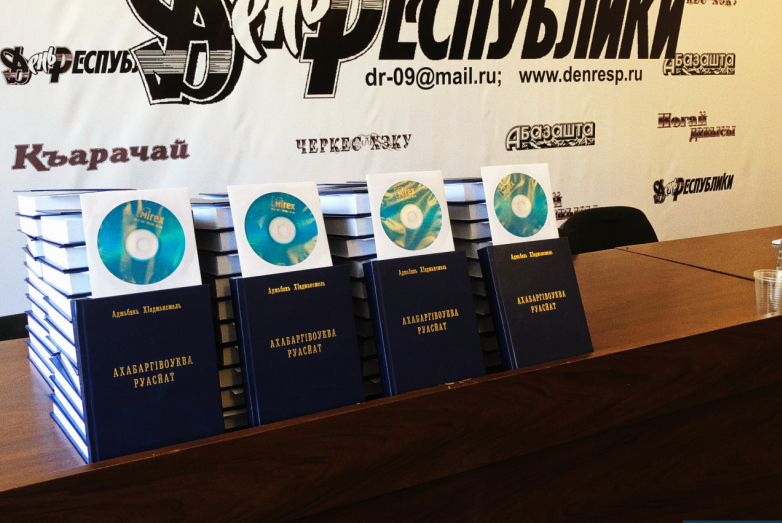
to login or register.